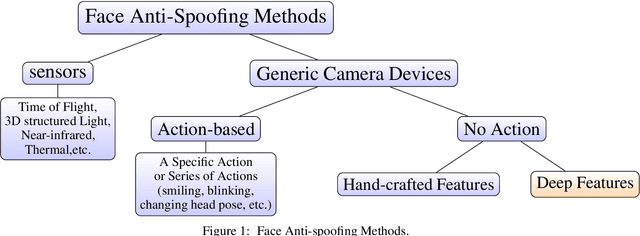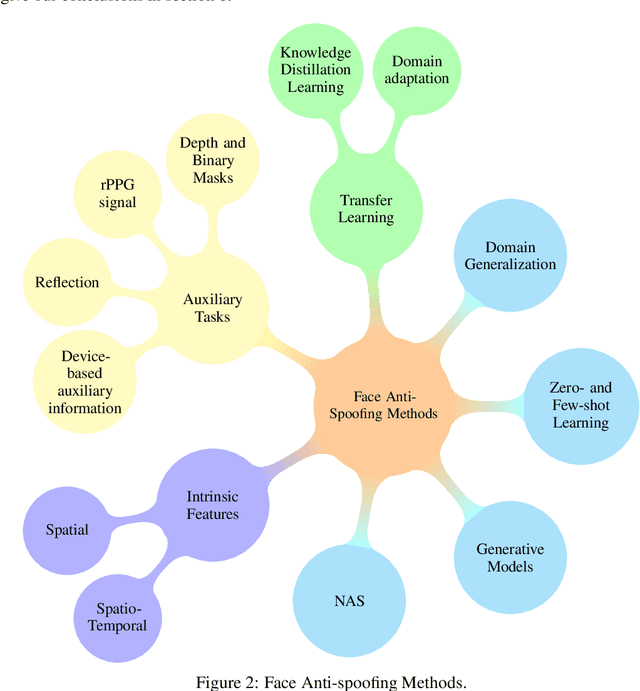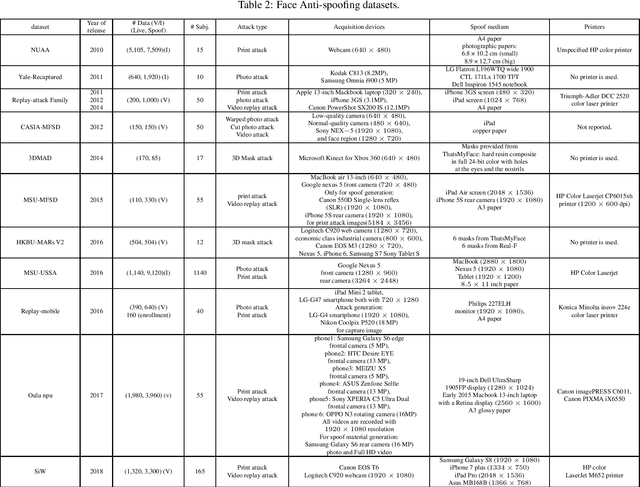Deep Learning meets Liveness Detection: Recent Advancements and Challenges
Paper and Code
Dec 29, 2021



Facial biometrics has been recently received tremendous attention as a convenient replacement for traditional authentication systems. Consequently, detecting malicious attempts has found great significance, leading to extensive studies in face anti-spoofing~(FAS),i.e., face presentation attack detection. Deep feature learning and techniques, as opposed to hand-crafted features, have promised a dramatic increase in the FAS systems' accuracy, tackling the key challenges of materializing the real-world application of such systems. Hence, a new research area dealing with the development of more generalized as well as accurate models is increasingly attracting the attention of the research community and industry. In this paper, we present a comprehensive survey on the literature related to deep-feature-based FAS methods since 2017. To shed light on this topic, a semantic taxonomy based on various features and learning methodologies is represented. Further, we cover predominant public datasets for FAS in chronological order, their evolutional progress, and the evaluation criteria (both intra-dataset and inter-dataset). Finally, we discuss the open research challenges and future directions.
 Add to Chrome
Add to Chrome Add to Firefox
Add to Firefox Add to Edge
Add to Edge